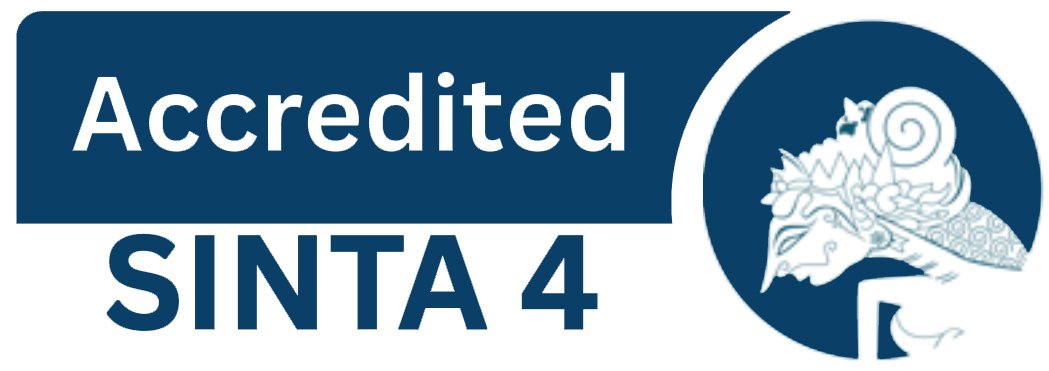GAMIFIKASI DALAM PEMBELAJARAN MATEMATIKA MELALUI PRODUCTIVE STRUGGLE SEBAGAI SOLUSI PEMBELAJARAN SELAMA PANDEMI
DOI:
https://doi.org/10.22460/collase.v4i2.6999Kata Kunci:
Pembelajaran Matematika, Gamifikasi, Productive StruggleAbstrak
This study aims to know the design of mathematics learning using the principle of gamification through productive struggle as a learning solution during the pandemic. This study used a descriptive qualitative approach with secondary data from several theories. The data collection process is carried out through a literature study that known as library research. The result of this study is an analysis of the application of gamification in mathematics learning through productive struggle design based on the characteristics of gamification and productive struggle concept. So, it can be concluded that the design of gamification through productive struggle in mathematics learning consist of these steps: 1) Teachers and students have an agreement for implementing gamification in mathematics learning; 2) The teacher introduces the challenges to students that must be faced and resolved; 3) Teachers design a leaderboard which is updated periodically; 4) The teacher designs badges for the acquisition and progress of learning; 5) The teacher provides an understanding of competition and collaboration value; 6) The teacher appreciates all the efforts that have been made by students. This study is very useful as a guide for implementing gamification through productive struggle which was considered effective in the provision of education during the pandemic.
Referensi
Abdurrahman, Mulyono. (2003). Pendidikan Bagi Anak Berkesulitan Belajar. Jakarta: Rineka Cipta
Borasi, R. (1996). Reconceiving Mathematics Instruction: A Focus on Errors. Norwood, NJ: Ablex
Carter, Susan. (2008). Disequilibrium and Questioning in the Primary Classroom: Establishing Routines That Help Students Learn. Teaching Children Mathematics, 15 (3), hlm. 134-37.
Depdiknas. (2003). Undang - Undang RI No.20 tahun 2003.tentang Sistem Pendidikan Nasional. Jakarta: Depdiknas
Depdiknas. (2006). Kurikulum Tingkat Satuan Pendidikan (KTSP). Jakarta: Departemen Pendidikan Nasional
Dewey, J. (1926). Democracy and Education. New York: Macmillan
Dweck, C. S. (1986). Motivational Processes Affecting Learning. American Psychologist, 41(10), hlm. 1040-1048. Doi: http://dx.doi.org/10.1037/0003-066X.41.10.1040
Eltigani, Y., Mustafa, A., & Sharif, S. M. (2011). An approach to Adaptive ELearning Hypermedia System based on Learning Styles (AEHS-LS): Implementation and evaluation. International Journal of Library and Information Science, 3(1), 15–28
Fauzan, et al. (2002). Traditional Mathematics Education vs. Realistic Mathematics Education: Hoping for Changes. Dipresentasikan dalam the 3rd International Mathematics Education and Society Conference, Copenhagen
Hernawan, A.H., Dkk. (2007). Media Pembelajaran Sekolah Dasar. Bandung: UPI PRESS
Hiebert, J., & Grouws, D. A. (2007). The Effects of Classroom Mathematics Teaching on Students’ Learning. In F. Lester (Ed.), Second Handbook of Research on Mathematics Teaching and Learning (hlm. 371-404). Charlotte, NC: Information Age
Hoffman, B.L., Breyfogle, M.L., & Dressler, J.A. (2009). The Power of Incorrect Answers. Mathematics Teaching in the Middle School, Vol. 15(4), hlm. 232-238 22
Inagaki, K., Hatano, G., & Morita, E. (1998). Construction of Mathematical Knowledge Through Whole-Class Discussion. Learning and Instruction, 8(6), hlm.503-526
Kemendikbud. (2013). Kurikulum 2013. Jakarta: Kemendikbud
Kilpatrick, J., Swafford, J., & Findell, B. (Eds.). (2001). Adding it up: Helping children learn mathematics. Washington, D. C.: National Academies Press.
Krusemann. (2020). 3 Tips students Motivation During Pandemic. Tersedia di: https://www.cambridge.org/elt/blog/2020/08/21/3-tips-students-motivationduring-pandemic [online]. Diakses pada: 10 Maret 2021
Millán, E., & Brusilovsky, P. (2007). User Models for Adaptive Hypermedia and Adaptive Educational Systems. The Adaptive Web, 3–53.
Ruseffendi, E. T. (2006). Pengantar Kepada Membantu Guru Mengembangkan Kompetensinya dalam Pengajaran Matematika untuk meningkatkan CBSA. Bandung: Tarsito
Piaget, J. (1960). The Psychology of Intelligence. Totowa, NJ: Littlefield Adams & Co.
Reinhart, S.C. (2000). Never Say Anything a Kid Can Say! Mathematics Teaching in the Middle School 5. No. 8, Hlm. 478-83
Ruseffendi, E. T. (2006). Pengantar Kepada Membantu Guru Mengembangkan Kompetensinya dalam Pengajaran Matematika untuk meningkatkan CBSA. Bandung: Tarsito
Santagata, R. (2005). Practices and beliefs in mistake-handling activities: A videostudy of Italian and US mathematics lessons. Teaching and Teacher Education, 21 (5), hlm. 491-508
Santrock, J.W. (2004). Educational Psychology 2nd ed. New York: McGraw-Hill Companies, Inc.
Steichen, B., Ashman, H., & Wade, V. (2012). A comparative survey of Personalised Information Retrieval and Adaptive Hypermedia techniques. Information Processing and Management, 48(4), hlm. 698–724
Stein, M. K., Grover, B. W., & Henningsen, M. (1996). Building student capacity for mathematical think- ing and reasoning: An analysis of mathematical tasks used inreform classrooms. American Educational Research Journal, 33, hlm. 455-488. 23
Stein, et. Al. (2009). Implementing Standards-Based Mathematics Instruction: A Casebook for Professional Development. 2nd ed. New York: Teachers College Press
Suherman, Erman., dkk. (2001). Strategi Pembelajaran Matematika Kontemporer. Bandung: JICA-FMIPA
Menteri Pendidikan dan Kebudayaan. (2020). Surat Edaran No. 36962/MPK.A/HK/2020. Jakarta: Kemdikbud
Vianna, Y. et. al. (2014). Gamification, Inc. Recreating Companies Through Games. Rio de Janeiro: MJV Tecnologia Ltd.
Warshauer, H. K. (2011). The Role of Productive Struggle in Teaching and Learning Middle School Mathematics. The University of Texas at Austin, Austin, TX. Disertasi: Tidak Dipublikasikan
Warshauer, H. K. (2014). Productive struggle in middle school mathematics classrooms. Journal of Mathematics Teacher Education, 17(4), doi: 10.1007/s10857-014-9286-3.
Warshauer, H. K. (2015). Strategies To Support Productive Struggle, Mathematics Teaching In The Middle School, 20 (7), hlm. 390- 393
Young Digital Planet. (2015). The Book of Trends in Education 2.0. Sanoma Company
Zaslavsky, O. and Shir, K. (2005). Journal for Research in Mathematics Education, 36 (4), hlm. 317-346.



